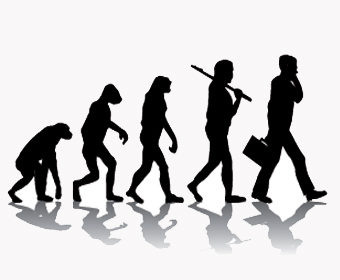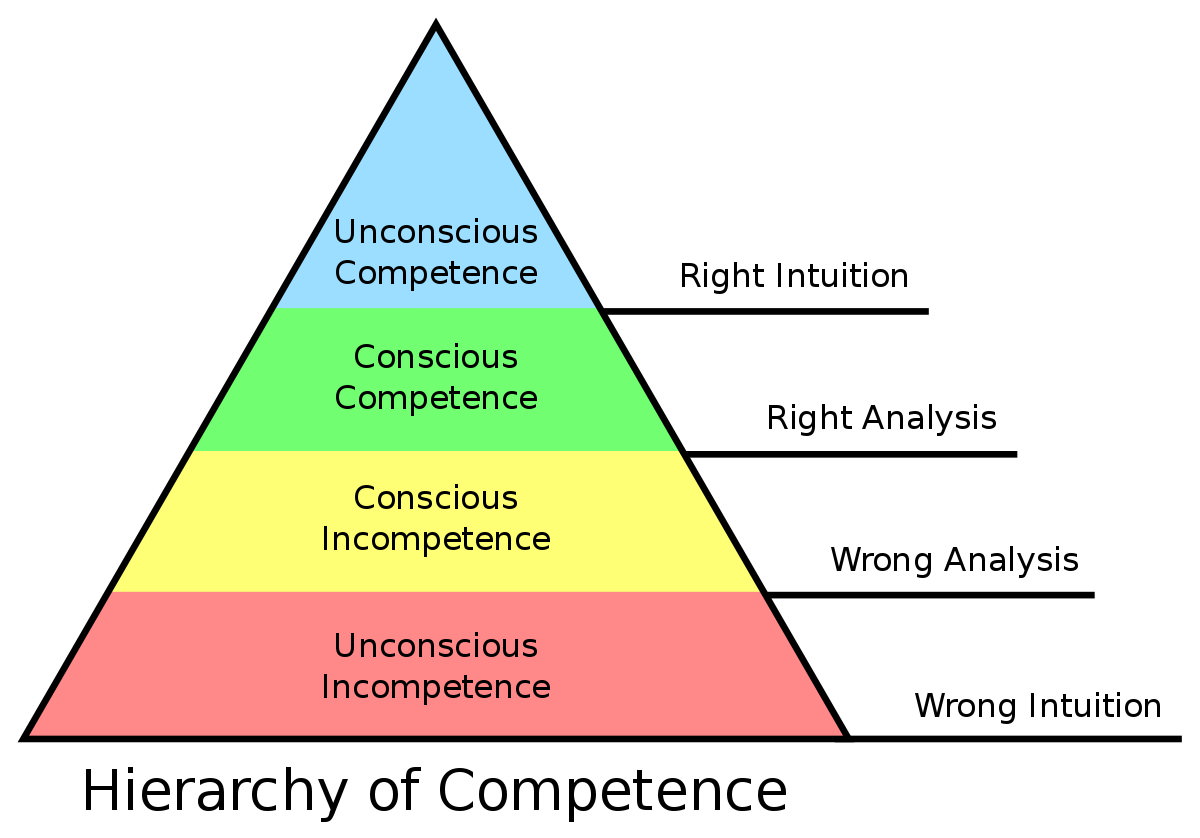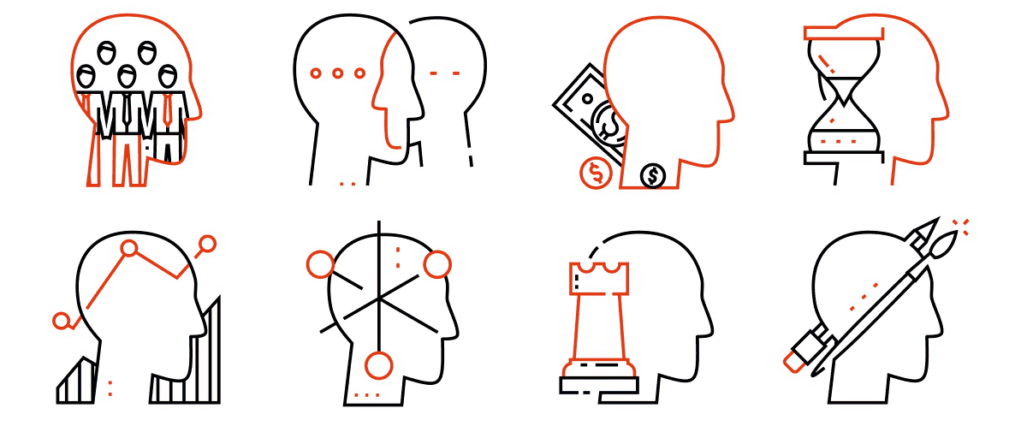Save the Manager of tomorrow is about to become another humanitarian activity. More and more entrepreneurs, inspired by the hype of their own success, want to do away with managers, aspiring to replace them with clones of themselves.
There is no doubt that the Manager must be re-designed to suit the 4th Industrial Revolution, but cannot be replaced.
In fact, re-designing the Manager is an ongoing process for over 4,000 years.
This article is written as recently the concept of abolishing the Manager is starting to gain traction, among some business “Gurus”.
Since there are no concrete proposals as to what is the Manager’s replacement, it is worthy of examination.
The following is the opening sentence of Mr Andrew Chakhoyan’s article Published in the World Economic Forum:
“The key to management is to get rid of the managers, advised Ricardo Semler, whose TED Talk went viral, introducing terms such as “industrial democracy” and “corporate re-engineering”.
(https://www.weforum.org/agenda/authors/andrew-chakhoyan).
It’s important to point out that Mr. Semler isn’t an academic or an expert in management theory, he is the CEO of a successful industrial company. His views are unlikely to represent mainstream thinking on organizational design. But perhaps it is time we redefine the term “manager”, and question whether the idea of “management” as it was inherited from the industrial era, has outlived its usefulness.
This, of course, has as corollary that a self-regulating, manager-less Company is possible. It is the same as a self-regulating anarchic Society. It is may be possible, but it is not probable.
Keeping management and doing away with managers is like than wishing to have wine by abolishing the winemakers.
The managers of today are not inherited from the industrial era. The pyramids, the roads, the ships the castles of the past were built by managers. Organized labour was and always will be run by managers, no matter what their title at the time was and what it will be in the future.
Some, in the distant past, were endowed with priestly authority, because that was the model that Society understood at the time. At other times they had other titles, but they were always people vested by delegated authority, granted by the owners of entities. Their function was, is and will be, to fulfil one or more tasks using the human and material resources available in an optimum way.
The Freemasons, Architects – Master Builders – Shipwrights were, among others, one of the oldest organized managerial associations – Today we call them Managers.
The manager of today is the product of a continuous evolution of the specie in the Darwinian sense.
 With the 4th Industrial Revolution already present what is needed is the redesign of the Manager together with the redesign of the Corporation. Some types and some levels of Management will be abolished and some others will be created and the same will happen to Companies and Corporations.
With the 4th Industrial Revolution already present what is needed is the redesign of the Manager together with the redesign of the Corporation. Some types and some levels of Management will be abolished and some others will be created and the same will happen to Companies and Corporations.
There is no doubt that it is possible to have an enthusiastic, successfully functioning, autonomous and manager-less team, for instance, in software or other product development. The team though, eventually, to promote its product has to fit in the organizational process i.e. to be provided with suitable space and facilities, to be supplied by hardware and logistics needs and even its creation, decision and reporting is due to a Manager-Client.
Many fall into the trap of thinking that the new digital tools provide a way to do away with managers. Nothing can be more wrong.
AI and similar systems are run on a rigid hierarchical basis that do not allow the slightest deviation. Hence their Achilles heel is when required to interface with humans. This is where management comes in today.
In particular, the manager is who bonds and uses data, algorithms, teams and customers together, to create a new business model system.
Redesigning the Manager
Before rushing to redesign the manager, it is necessary to define at what level and sector of a Corporation, the Manager has to be redesigned and prior to redesigning, what qualifications a Manager should possess.
First, is to organize the work of others while the second one, is to optimize the use of human and material resources for a purpose. These are the constants.
To achieve this purpose, the Manager, compared to the recent past, has a number of Superior Tools:
The first one is Information. To this end, the ability of the manager to understand which tools under his disposal are best suited to give the information required for the task to be executed, is very important.
Choosing the pertinent information, evaluating and disseminating it, is the first and foremost responsibility of the Manager.
This is not the same as expecting the manager to be digitally literate. Of course, a manager has to be.
The primary virtue of the Manager is forming its information methodology.
Decisions can be based more on facts, but choosing the decision-worthy facts is the New Managerial Competence.
It is a prime managerial ability to quickly and efficiently act on analytical insights to deliver desired business outcomes.
Since the facts are never complete or fully trustworthy the skill of the Manager is to navigate the information systems in such a way that managerial decisions are supported to the greatest extent possible by relevant and reliable facts.
The new breed of Manager makes hybrid data driven assumptions, deciding when enough data justify a decision without needing to wait for the full data. That again is a managerial skill that has to be “learnt” but only methodologically, because managerial talent for it is still needed. The talent of the Manager lies exactly in its ability to minimize mistakes due to lack of knowledge and still make timely and, more often than not, correct decisions
The second tool and virtue of a Manager is the speed and accuracy of its feedback loop.
A manager that creates Strategy and hence Business Model, does not create a perpetual motion machine. If that was the case, then indeed we could do without managers.
So again, the modern Manager has to organize his data based feedback system to be as accurate, fast and holistic as possible. It is still necessary for the Manager to interpret feedback information. This is why the modern Manager must know and understand in depth the digital tools available, as well as, their limitations. That in general.
The rest depends on the type of job. Different manager for creative different for internal auditing etc.
Some examples:
 The new Marketing Manager
The new Marketing Manager
It has been argued that in our times it has never been easier to reach consumers and it has never been harder to make a connection with them. The challenge for the Marketing practitioners hangs on their competence to navigate the Purchase Funnel – Awareness to Consideration/Preference to Conversion/Purchase to Loyalty/Retention, in an evolved way.
The new Marketing Manager should be an authentic storyteller by providing a unified consumer experience connecting the dots across platforms and channels off & on line. Fully understands the value of Content, tailored made for different channels, using unobtrusive Brand voice with a fresh perspective. Furthermore, branches out to Customers and Suppliers alike for mining consumer insights.
The new Digital Manager
 Is the one that implements effective Business Intelligence strategies for real time decision making on the cloud with A.I., data analysis & data mining. The previous Chief Information Officer (CIO) is now transforming into Chief Data Officer (CDO), for enterprise wide governance and utilization of information as an asset to produce leads. Gartner estimates that 90% of large global organizations will have a CDO by 2019. Data governance & Data management is critical in the era of Internet of Things (IoT). Let you be the one that you will manage the data, and not the data to manage you.
Is the one that implements effective Business Intelligence strategies for real time decision making on the cloud with A.I., data analysis & data mining. The previous Chief Information Officer (CIO) is now transforming into Chief Data Officer (CDO), for enterprise wide governance and utilization of information as an asset to produce leads. Gartner estimates that 90% of large global organizations will have a CDO by 2019. Data governance & Data management is critical in the era of Internet of Things (IoT). Let you be the one that you will manage the data, and not the data to manage you.
The new CFO
 CFOs were in the past the ultimate managers of Money that was created mostly outside their area of responsibility. Now, with the new technologies and particularly the digital ones, they are part of the value creation chain of the whole enterprise, in a strategically collaborative way, based more on data analysis techniques and less on spreadsheets.
CFOs were in the past the ultimate managers of Money that was created mostly outside their area of responsibility. Now, with the new technologies and particularly the digital ones, they are part of the value creation chain of the whole enterprise, in a strategically collaborative way, based more on data analysis techniques and less on spreadsheets.
Kraft Heinz’s 100 billion business new CFO, is David Knopf, a 29-year-old with an amazing track record who is, further to his exceptional talent, excellently capable to use all the leading edge digital technologies in an integrated, value enhancing strategic way.
The current and future CFO plays a major part of the C-suite transformative drive to re-shape the Business Model of the enterprise, for value creation that ensures the Company’s survival and growth.
The new Project Manager(PM)

The new PM manages projects to create value. The basic modern management concept is that Projects derive their value from goal achievement which always is a balance of quality, resources, time and risk.
Modern PMs act so that things get done even when they are not in charge overall.
The modern Project Management requires the encouragement of open information sharing with highly collaborative team work and discreet leadership.
The new PM knows how to create successful teams have their own identity, are motivated, communicate freely, resolve their conflicts and maintain a positive mood throughout the vicissitudes of the realization of a Project.
Modern PMs can through barriers to cooperation, turning adversaries into partners.
The modern PM is more an apparent moderator and keeps a low profile as an effective team leader.
The new Event Manager
 The new event managers, like the old ones, are cool and calm under pressure!
The new event managers, like the old ones, are cool and calm under pressure!
The new event managers, unlike the old ones, should adapt and challenge new technologies around them and implement them in project.
They are like a “chef” in the kitchen.
Takes all the ingredients and blends them together in a pan to create the “masterpiece”  at the end.
at the end.
The new technologies are more important than ever, Artificial Intelligence (AI), Augmented Reality (AR), Virtual Reality (VR), Kinects (NUI), Social Media Applications and of course, all the new technologies deal with big projection systems (3D Projection, Live Mapping, 3D Mapping).
The new event manager is more and more depended on digital ability. Success depends on the ability to blend the human with the digital, presenting the final product.
His is more and more depended on his digital abilities. His success depends on his ability to blend the human with the digital and present the final product.
Finally, the Top Manager or Top Executive
 There are essentially two types of a Top Executive:
There are essentially two types of a Top Executive:
-The one who considers that he/she has reached the apex of the personal professional career achievement.
-The one that sees his/her position as the opportunity to develop fully his/her entrepreneurial talent.
Obviously, a real Top Executive is a mixture of both the above but the type separation helps in defining the new “redesigned” Top Manager.
The first type is the process driven one.
Understands Company culture, produce results through it, identify and protect the value making parts of the company and is more concerned not to do something wrong and damaging rather than experiment with something radical.
They are incrementalists.
The second type is the entrepreneurially driven one.
It is fashionable nowadays to exhort the managerial skills of Jeff Bezos, Elon Musk and the like. But these people are not Managers, they are entrepreneur-creators. They create managers that are similar to them in style and Business approach.
The term “Jeff-Bots” and similar do not denote yes-men. It denotes Top Managers redesigned for the needs of modern Companies, like Amazon, following the path-finding mentality of their Leaders.
This type is a blend of the entrepreneurial spirit, hybrid data user and linked with self-decision-making capability.

The above characteristics, coupled with the classic talent to optimize the use of resources for the achievement of the desired results, constitute the new re-designed Manager, that Companies cannot do without.

